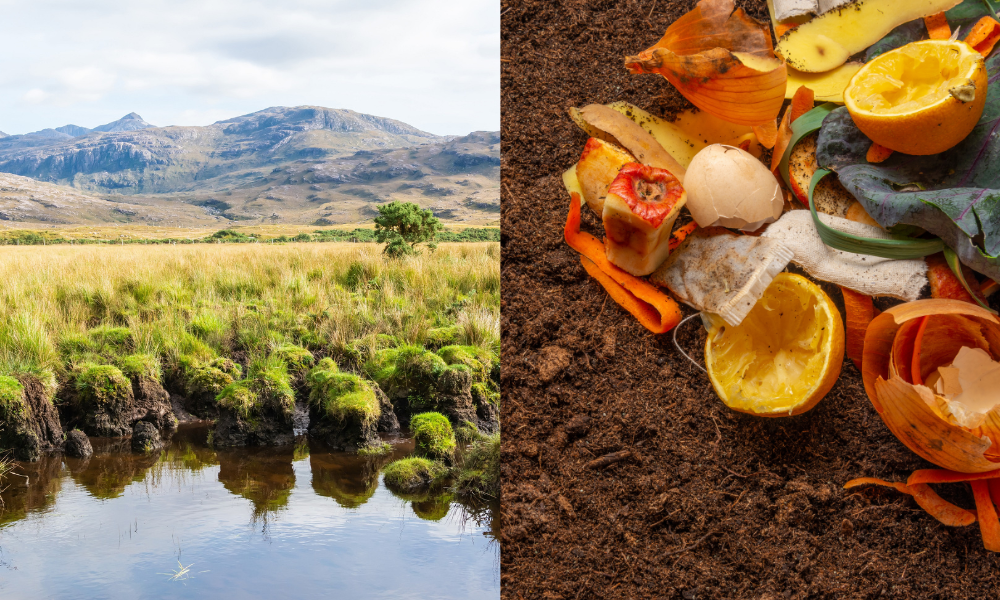Working with Policy: Presenting research to DEFRA
Recent News
- From beans to minerals: the new projects getting science into policy
- Hunger on our doorstep
- Place-based working to meet national well-being and sustainability goals

It is important to us at Agile to continue experimenting with how best to work with policy makers, so we were very pleased to be invited to give this webinar series during a fortnightly lunchtime slot for DEFRA. We presented show and tells on two of our recently completed Sprints, and a panel on the relationship between researchers and policy makers.
Our show and tells were delivered by the Nutrient Waste Flows Sprint (led by Aidong Yang, on 5th September, with 85 attendees from DEFRA) and the Greenhouse Gas Uncertainties Sprint (led by John Lynch, on 19th September, with 74 attendees from DEFRA and DAERA). We asked the Sprint leads to reflect on working with their stakeholders
The Show & Tells
In what ways was the webinar useful to your understanding of how DEFRA works and what their priorities are?
“We were very keen to introduce our final output to DEFRA, and the webinar provided exactly such an opportunity. It was very interesting to learn from them that the issues we investigated are still very much “live” within the remit of Defra, and that some of the opportunities we have identified align well with what they have been working on.” (Aidong Yang)
“It was interesting to see the breadth of expertise and interests within DEFRA, and how those joining the webinar were interesting in gaining an understanding of how their focus areas fit into the broader context of broader ongoing research. It indicated to me that there may be useful potential to link up and provide wider supporting evidence for policy development and bridging different work being undertaken at DEFRA – not necessarily just addressing a single individual need.” (John Lynch)
In what ways do you think the webinar was useful to DEFRA?
“I think that our work, which primarily focused on the local/regional scale as opposed to national, complements Defra’s own (primarily nation-wide) investigations. The summary that we presented at the webinar provided an opportunity to draw their attention to the scope of our work and the key findings.” (Aidong Yang)
“The part of the sprint presented at the session was somewhat specific to agricultural emissions in Northern Ireland, but the wider context of why and how to reduce agricultural emissions, and some of the nuances in evaluating and communicating the benefits of reducing methane are also very applicable to DEFRA.” (John Lynch)
Looking back now, are there things you would have done differently in your Sprint in relation to the policy partners?
“We did receive active input and support from DEFRA at the proposal development stage and a few points during the project, though with different groups. This engagement could have been better if we had improved continuity in terms of the people we work with and the regularity of contact, although I appreciate that these are challenging given the demanding jobs people in DEFRA have and the dynamics of their priorities.” (Aidong Yang)
“With the benefit of hindsight there are probably a few things I’d shift around, and especially would have made things easier for me now to hone in on the eventual scope of the full paper write-up a bit earlier! However, some of the research details came out organically through ongoing back-and-forth with the stakeholders, with priorities changing as deadlines and immediate needs shifted: overall I think we had a successful working relationship that fulfilled the original ambition.” (John Lynch)
And what did the policy makers say?
“These issues were live 2 years ago, and still live now. Policy moves very quickly sometimes, and sometimes moves incredibly slowly! A lot of the time, these things will come back round.” (Jacques Launay, DEFRA, on the nutrient waste flows research)
“It was excellent, I don’t say that lightly. Excellent in terms of timeliness, focus, direction, communications, and it’s been a really important part of our research portfolio. It was a positive experience to be involved in, a two-way process, a partnership, not a consultancy. Really important for us in terms of our evidence base.” (Alistair Carson, DAERA, on the greenhouse gas uncertainties research)


